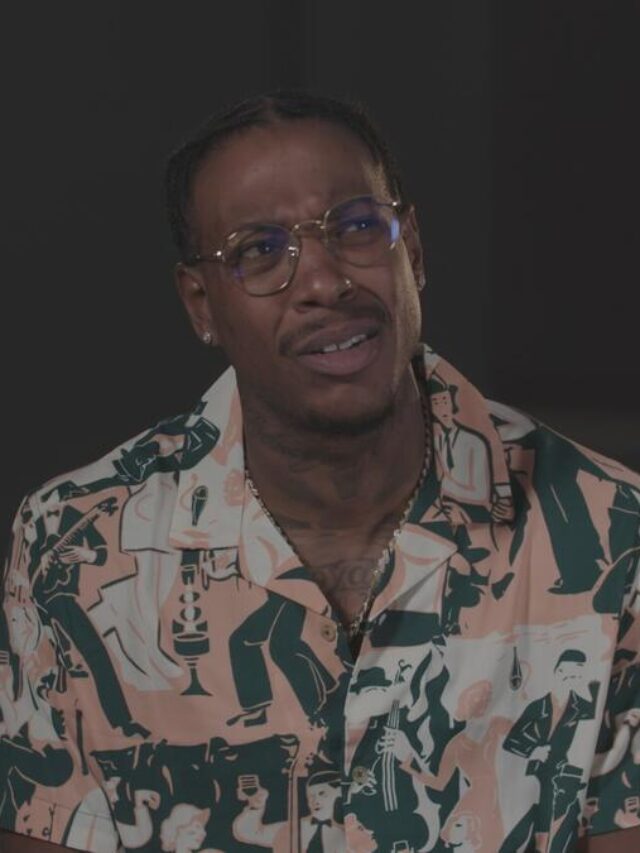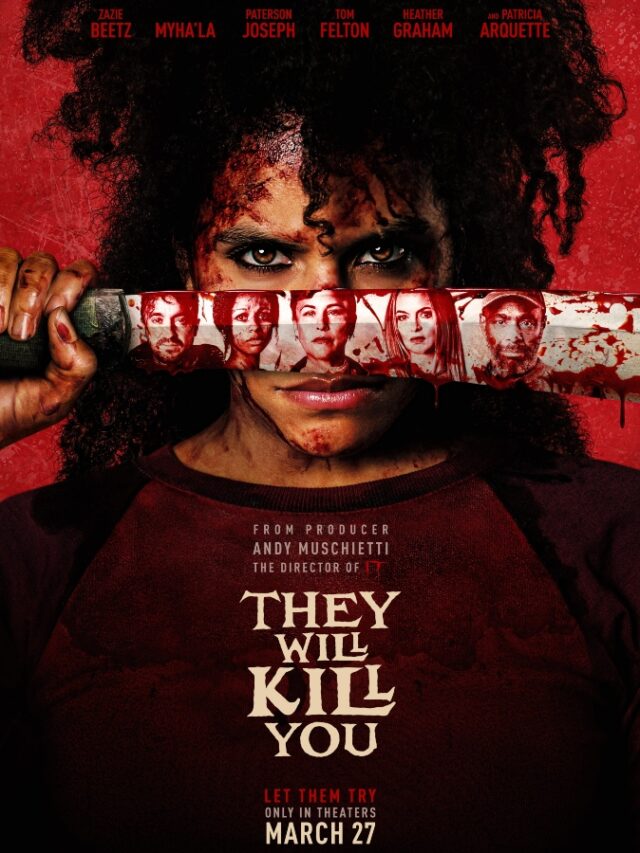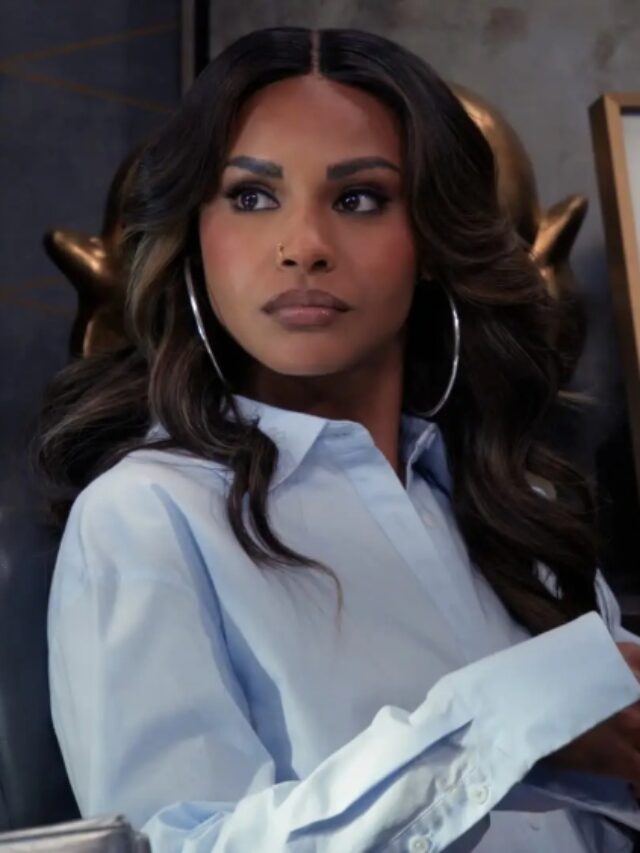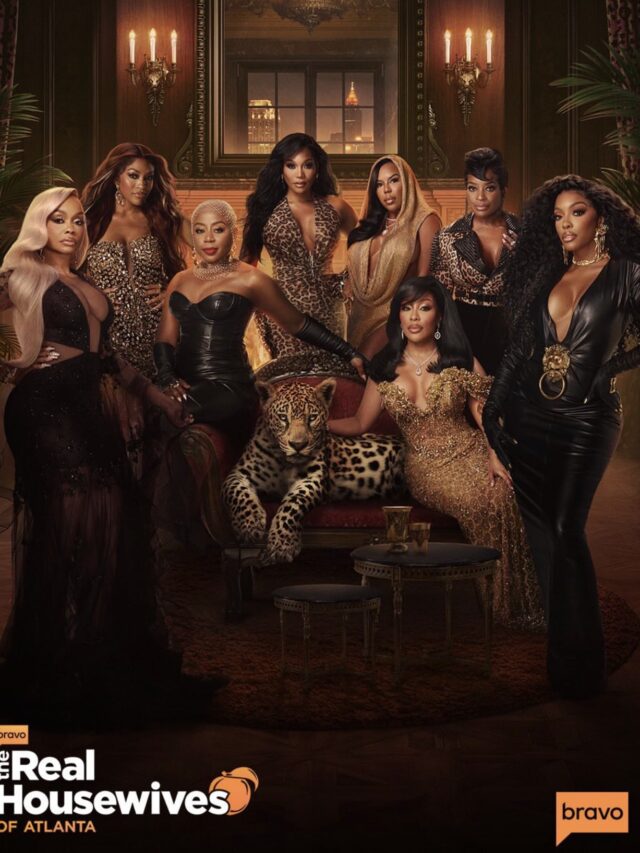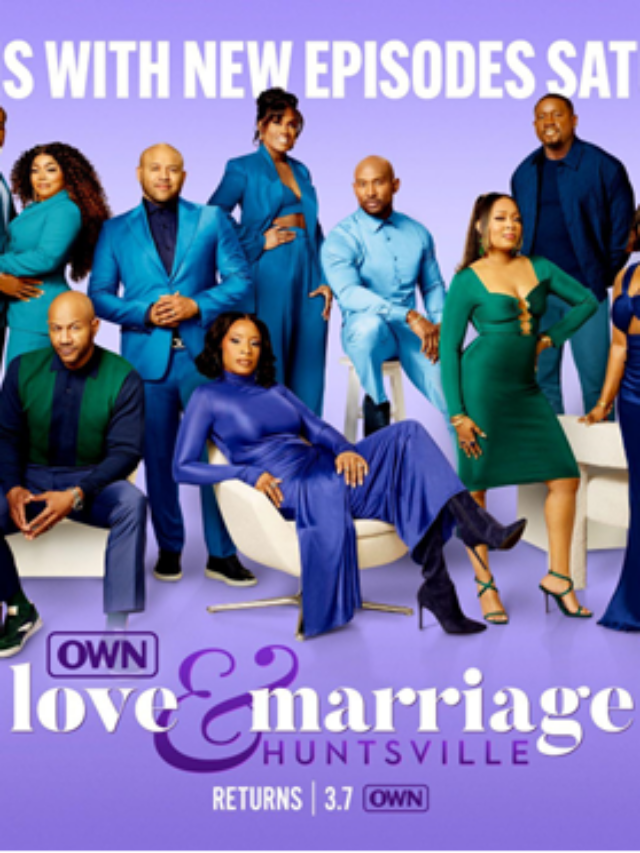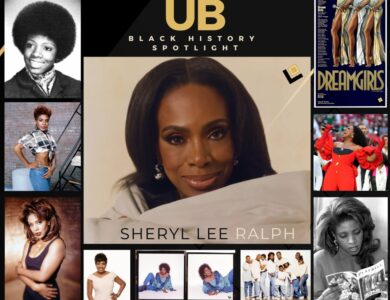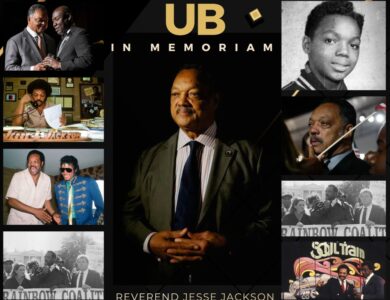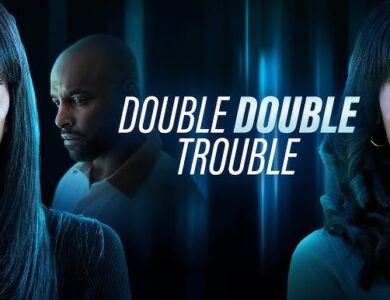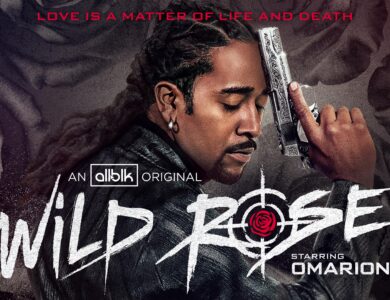UB In Memoriam: Legendary Frankie Beverly
Nearly 30 Hit Singles and Eight Gold Albums.
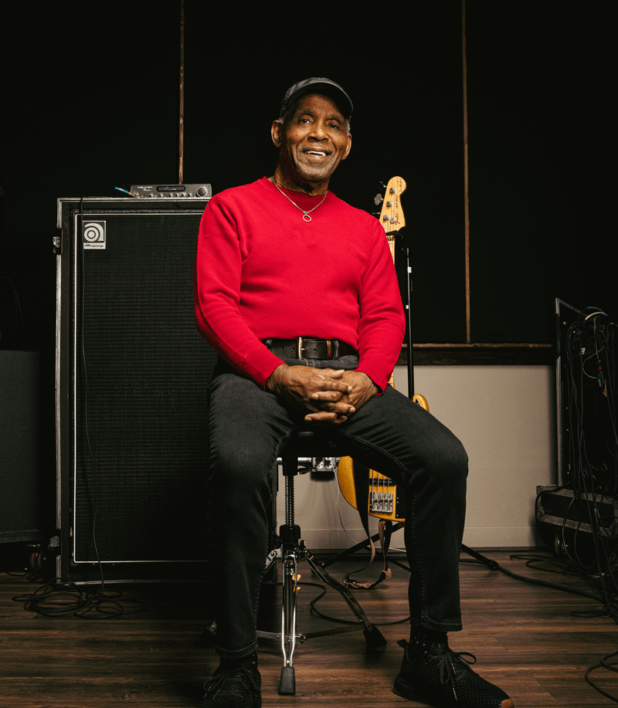
Today we mourn the loss of legendary Frankie Beverly. He passed away at the age of 77.
His family released the following statement: “Grieving the loss of a loved one is a deeply personal and emotional experience. During this time, as we are navigating feelings of sorrow, reflection, and remembrance, we kindly ask for privacy and understanding, allowing us the space to grieve in our own way. This period for us is one of healing, and your respect for our need for solitude is appreciated as we honor the memory of our beloved Howard Stanley Beverly, known to the world as Frankie Beverly.”
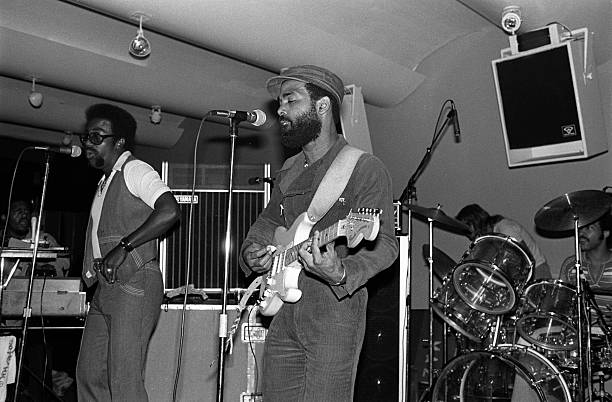
The music of Maze featuring Frankie Beverly is distinctive — passionate, creative, original, soulful, honest and powerful.
The multi-talented artist, writer and producer, Frankie Beverly was involved with music since his early years growing up in Philadelphia.
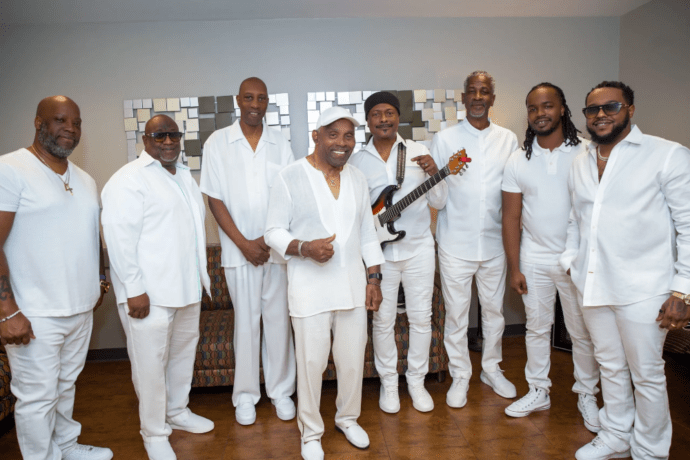
Born December 6th, 1946, Frankie once recalled, “like most black artists, I was influenced by going to church. You know, it was like anyone that could sing was featured in a Sunday program! So I did a lot of solos in church…a lot of singing!”
Secular music entered Frankie‘s life when he was around eight or nine: “The first record I can remember was Lloyd Price’s “Lawdy Miss Clawdy.” I heard it and said, ‘what’s this?’ I loved it! But it was Frankie Lymon and The Teenagers who really turned my world upside down. In fact, I was so blown away by Frankie that I changed my own name – my birth name is Howard! But after I heard Frankie and the guys, I was totally bitten. I knew every one of their hits – “Why Do Fools Fall In Love,” “I Want You To Be My Girl,” “Who Can Explain?,” “The ABCs Of Love”… Every time they appeared on “The Ed Sullivan Show,” I was glued to the t.v. and whenever they came to town to appear at The Uptown Theater, I was right there. In fact, seeing Frankie was the catalyst for me to want to get into music. He was young, just like me, and he was up there doing it, making a living in music…”
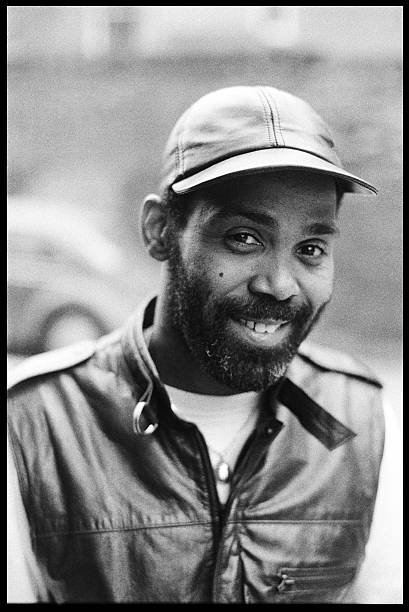
Fueled by Lymon‘s success and influenced vocally, he noted, “by Sam Cooke, who blended gospel and secular styles so well,” Frankie found himself in a local group during his junior high school years. Word of mouth in Philly about ‘Little Frankie‘ (as he was known) led to his first professional gig…at the tender age of twelve!
He wanted to create his own career in music, Frankie says that his family was basically supportive: “I mean, my father was like all fathers at that time. It was all about me getting a job and music didn’t sound like it was something serious to do. So we clashed as I was growing up…but now, I wonder where I would be without him…so on reflection, I got the proper family support to pursue my musical dreams…”
Frankie formed a couple of local groups: “First off, we had The Blenders. We did accapella, doo-wop kind of things and we were influenced by groups like The Moonglows, The Del Vikings, The Dells. It was a trip because you’d start a group and some guys would stick with it, other guys wouldn’t be serious… Anyway, after The Blenders, there was The Butlers and that was when I started recording. We did records for local labels between 1963 and 1968: Guyden, Liberty Bell (which was owned by Leon Fisher, who became my mentor in this business), Fairmount, Parkway, and Gamble, which was the first label that (legendary producer) Kenny Gamble started.”
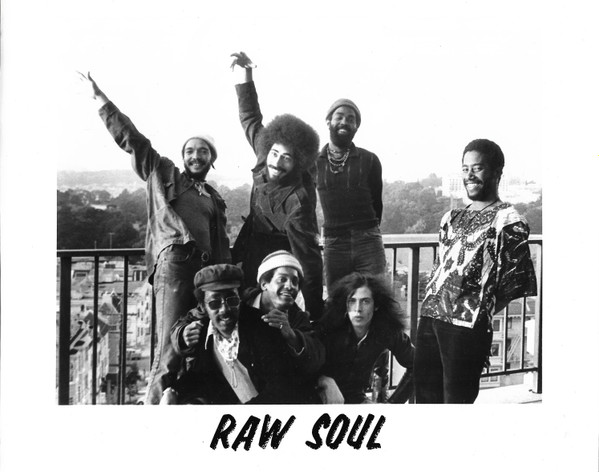
Frankie‘s records with The Butlers were much in the traditional of vocal harmony groups but he says that listening to Sly & The Family Stone in the late ’60s changed his whole musical direction. “Sly was like a ‘dressed up’ James Brown to me,” Frankie reflected. “He wasn’t afraid to come out and be different. Before the Family Stone, black groups did doo- wop or they were a band with a front man. Sly had this self-contained thing that you usually found with rock groups. Once I saw what he was doing with the Family Stone, we changed from what we had been doing to becoming a self-contained unit. And we became Raw Soul. That’s when I started playing rhythm guitar and a little bit on the keyboards…”
The transition from The Butlers to Raw Soul was marked by a couple of records cut for the Gregar label: “One of the owners, George Greiff flew in this guy Jimmy Miller (who worked with The Rolling Stones) from England to produce us…we did this Taj Mahal tune, “Tomorrow May Not Be Your Day” and I talked George into letting me do the “B” side which turned out to be the first time I recorded the song “While I’m Alone.” After working with different producers, I started to realize that no one else could really get what we were about musically…”
Even though Raw Soul (whose line up included Maze percussionist McKinley ‘Bug’ Williams, an original member of The Butlers) was able to work in and around the city, Frankie decided that “Philly wasn’t going to be the place for what we wanted to do… So, in May 1971, we headed out to the Bay Area, where all the bands were based – you know, Sly, Santana, Cold Blood. By that time, we were doing 80% original material, most of which I was writing…”
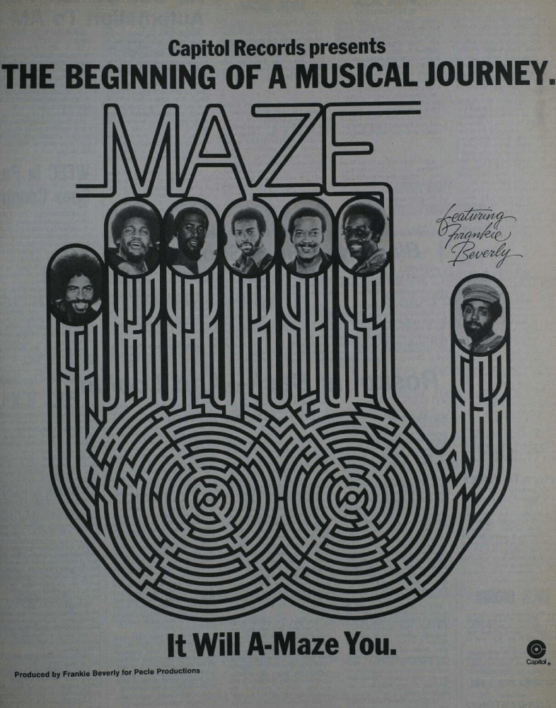
After an eventful trip across country, Raw Soul landed in Oakland and, “it was rough! We slept in the bus and we had a hard time getting gigs. I remember, one night we met this girl and she loved our music. We didn’t have an agent or anything and she promised she would get us work…and in a month, she had us doing gigs. We landed a job at a club in San Francisco called The Scene and we were there for a year. The club owner decided to invest in us and we recorded a whole album of songs. That became the basis for the first Maze LP…”
A major turning point in the transition from Raw Soul to Maze occurred after Marvin Gaye‘s sister in law caught one of the band’s performances. Suitably impressed, she mentioned the group to her sister Jan, knowing that Marvin was getting ready to hit the road and was actively looking for a backup band. “Jan came to see us and fell in love with what we were doing and a week or so later, Marvin Gaye was sitting there watching us do our thing! I can’t describe how I felt,” Frankie says, “because he was an idol of mine…and I couldn’t believe he was checking us out!”
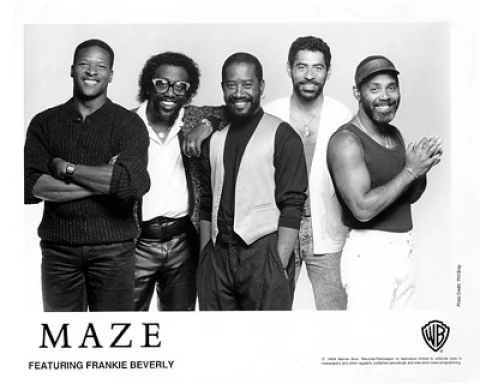
Marvin Gaye was so inspired by the group that he took them out on the road, letting them perform some of their original material as an opening act, “really hanging in there with us, paying our rent, helping us in every way he could. He loved me like a little brother and certainly working with him helped bring our demos back to life. We sent them out again – the first time around, no one was interested. This time, we got a call from Larkin Arnold at Capitol Records about a week after he got the tape…and we had our first record deal!”
In 1981, Frankie and company made their first trip to the U.K., blowing audiences away with their dynamic ‘live‘ performances and establishing a bond. The acceptance of the group’s music in Europe was a defining event for Frankie: “It was unbelievable to me! I was looking for black folks to be at the shows because that’s basically who makes up our audiences here – and when I looked out there, I saw a crowd that was 99% white, grooving, digging our music…”
The Band

William Bryant: Keyboards and synthesizers
Robin Duhe: Bass guitar
Roame: Congas, background vocals
Ron Smith: Lead and rhythm guitar
McKinley “Bug” Williams: Percussion, background vocals
Philip Woo: Keyboards, synthesizers
Mike White: Drums
The 80‘s brought the release of the best-selling albums, Golden Time of Day, Inspiration, Joy and Pain, containing a list of chart-topping singles including “Travelin’ Man,” “Feel That You’re Feeling,” “Joy and Pain,” “Look in Your Eyes” and “Southern Girl,” to name a few. The group gained worldwide appeal with its legendary sold-out live appearances, and released the deluxe album Live in New Orleans which captured the energy, excitement and electricity of a Maze stage show and offered a fourth side of new studio material which included the hit single “Running Away.”
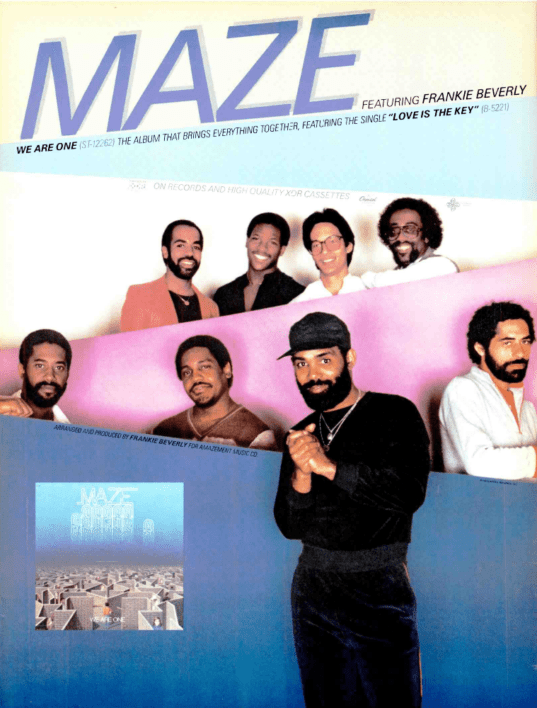
In 1983, with the release of We Are One, Frankie Beverly & Maze solidified their international standing with such hits as the title track “Never Let You Down”, “I Love You Too Much” and “Love is the Key.” As the 80’s came to a close, the group released Can’t Stop the Love and a second in-concert package, Maze Featuring Frankie Beverly Live in L.A., which served both as a retrospective of the group’s remarkable career to date and a fitting close to the first chapter of the Maze legend.
With a change of record label and shifts in the group’s line-up a new era was launched for Frankie Beverly & Maze. “We wanted to emphasize our strengths, bring together the elements that have always been a part of our music and really focus on them,” continued Frankie.
The band released Silky Soul, one of their most successful albums, which included the smash singles, “I Can’t Get Over You” and the title track.
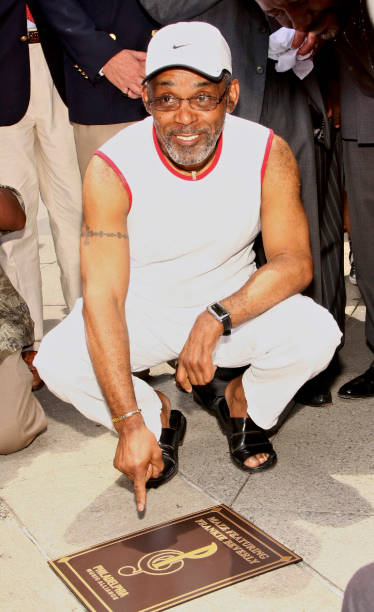
After a solid year of touring North America and Europe, the group took a break to recharge their creative juices. “When you’re trying to do the best you can..to give the people everything you’ve got, you need to be patient,” Frankie emphasized. With anticipation and excitement, the group released Back to Basics which captured the passionate, electrifying essence of the group, and included the hit singles, “Laid Back Girl,” “The Morning After” and “What Goes Up.”
The group worked with Warner Bros. on a Christmas album, that was never released.
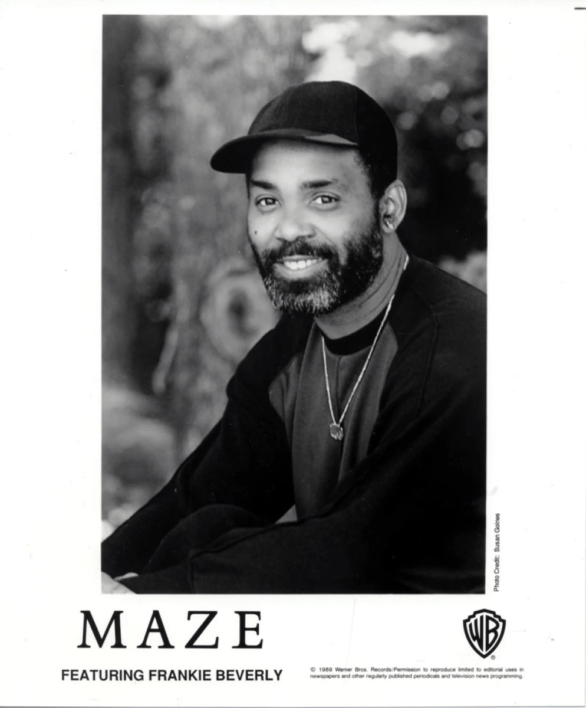
As a headlining act, Frankie Beverly and Maze were instrumental in giving exposure to several new recording artists, before they became household names, including Toni Braxton, Regina Belle and Anita Baker, to name a few. “I guess beyond what we’ve done with Maze, the second thing I’m most proud of is that we’ve supported other artists. We were the first group to give Natalie Cole a chance during her comeback years (in the mid-’80s). We took Anita Baker out as our opening act on her first national tour and did the same thing with Regina Belle and Toni Braxton…and it makes me feel great to see how each of those artists has gone to have great success…”
When Frankie reflected on his years as a music maker, he stated that the early years spent paying dues “prepared me for what has happened to me and the band. By the time we started being successful, we were ready and we didn’t get overwhelmed or caught up in all that ‘star’ stuff. I was just thankful that people liked our music. But when I started out, I never looked for any of this…I mean, it blows me away that our logo has caught on and that people even have a ‘thing’ about my hat, which has become almost like my personal trademark. You see, I would have been happy selling 20,000 or 30,000 albums. To have all these gold records is a blessing…”
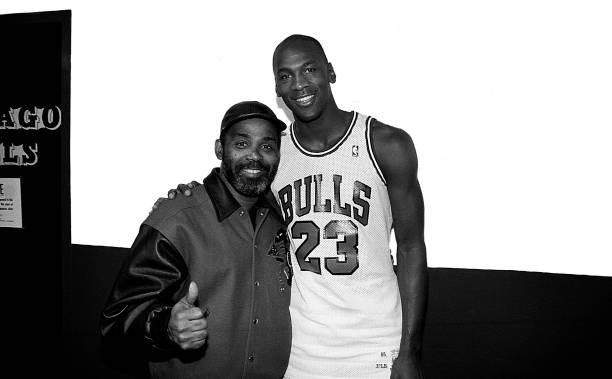
“We’ve made it this far because we love and respect ourselves and our fans. But, most importantly, we believe in what we do,” remarked Frankie.
Although the group has never won any awards they continued to attract sold-out audiences, giving them the title “best kept secret in the industry.”
Maze enjoyed a run of nearly thirty hit singles, nine of which hit the Top 10 R&B; charted singles including the classics “Running Away,” “Love Is The Key,” “Back In Stride,” “Too Many Games,” “Can’t Get Over You,” and “Silky Soul.”
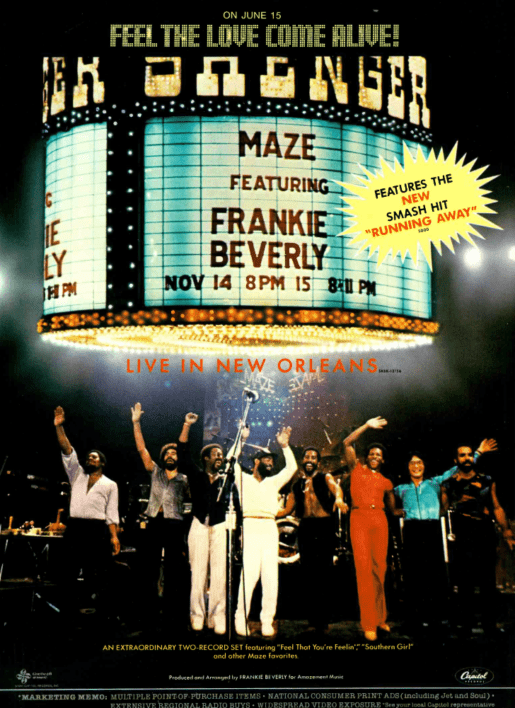
Eight of the group’s ten albums have gone gold, all the way from their 1977 Capitol debut to the 1993 album, “Back To Basics.”
In 2024 Philly honored the legend with a street renaming ceremony, in the East Germantown area of Philadelphia on North Norwood Street, between Church Lane and West Godfrey – the neighborhood where Frankie Beverly was raised.
This year Frankie Beverly also received the Lifetime Achievement Award from the NAACP and headlined his final farewell tour, that ended it May.
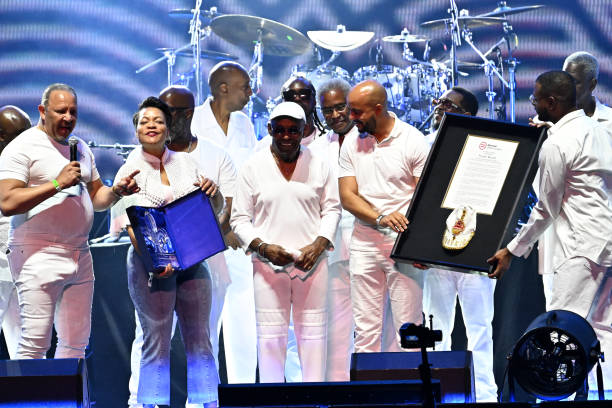
UB sends our condolences to the Family, Friends and Fans of Frankie Beverly!
Take A Trip Down Memory Lane!

